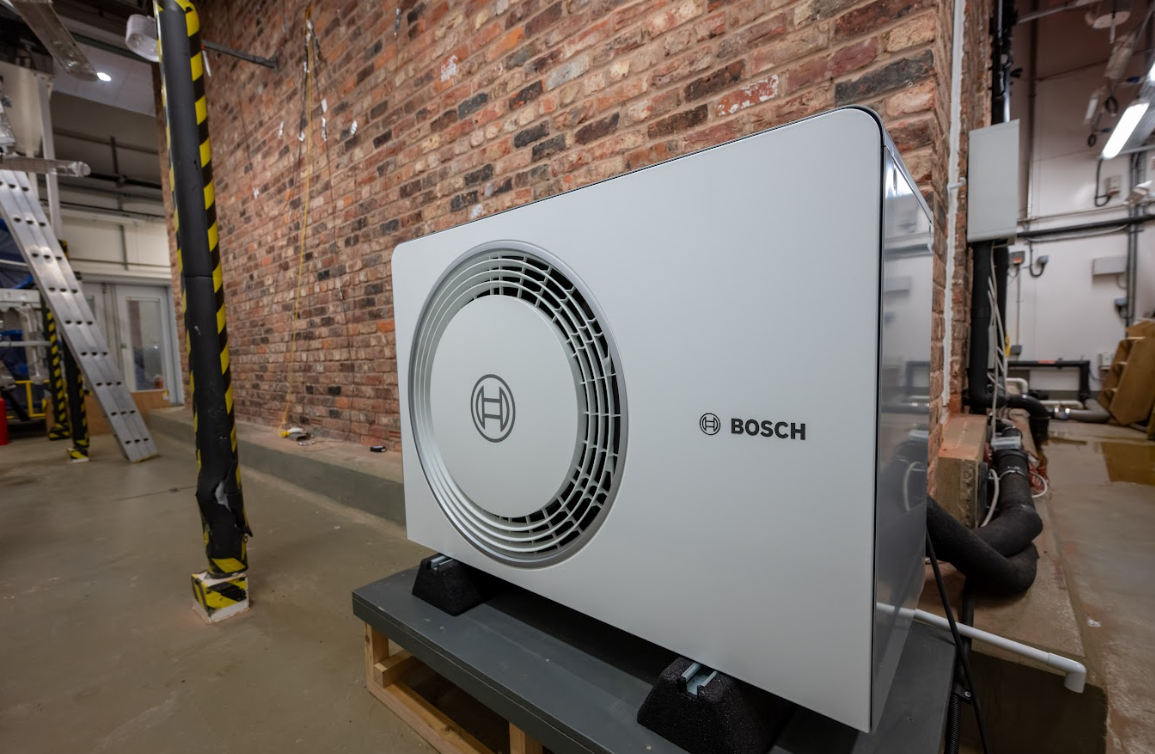
As an “industry-first” trial shows hybrid heating technology to be a highly effective solution to lower carbon heating for UK homes, Worcester Bosch is calling on government to “seriously consider including hybrids in the Boiler Upgrade Scheme.”
Positioning the technology as a highly effective solution to lower carbon heating, a new trial has found that hybrid heat systems “can effectively heat homes in the UK while still working towards the country’s net zero goals,” as a weighted average of 94% of annual heat demand would come from the heat pump element.
The joint research project between manufacturer Worcester Bosch and University of Salford took place at the latter’s Energy House Lab — a full-scale reconstruction of a pre-1920 end-terrace home, as commonly found across the UK, that could simulate different outdoor temperatures ranging from -3°C to 16°C.
Accordingly, the findings from the trial are claimed to show that a hybrid system can perform “exceptionally well” in typical UK homes. Based on the analysed data from the trial, a hybrid heat pump has the potential to:
Deliver a weighted average of 94% of the total annual heat demand from the heat pump element.
See the heat pump handle 100% of the heating requirements when outdoor temperature is 7°C or above — and when at its coldest (-3°C), contribute above 70% of the total space heating.
Reduce 1,270kg of CO2 compared to a boiler-only saving — approximately 77% of the carbon savings of a full heat pump.
The trial involved a ‘bivalent parallel system’ where a heat pump and boiler run in parallel via a smart ‘hybrid manager’. The heat pump acts as the primary heat source, with the boiler only adding supplementary heat to meet demand when the outdoor temperature drops. This is said to enable efficient heat delivery — particularly during winter peaks when demand is at its highest.
The findings confirm that a hybrid heat pump system offers “real, practical benefits for homeowners, without the need for costly and disruptive preparatory work to their properties.” These include:
Savings of £79 on annual energy bills compared to a standalone gas fired boiler.
Improved the Energy Performance Certificate (EPC) rating of the property from Band D to C — a key government target.
Provide a more cost-effective route to lower carbon heating, delivering 1.5x the present carbon savings per pound of public spending.
A push for policy change
Worcester Bosch believes the findings present “strong evidence that hybrid heat systems should be considered in government initiatives that encourage increased uptake of lower-carbon technologies.” CEO Carl Arntzen commented: “Lowering the carbon emissions of the UK’s homes is a shared goal that requires a range of effective and accessible solutions. The findings from our work with the University of Salford are clear: bivalent parallel hybrid heat pumps are a practical and highly effective technology for the UK today.
“We believe government recognition and financial support for hybrid heat pumps, such as including this proven technology in the Boiler Upgrade Scheme (BUS), presents an opportunity to make the transition to lower carbon heating faster, fairer and more effective. It offers a practical and accessible stepping-stone on the journey to net zero for millions of households.”
Click here for more information from Worcester Bosch and to access the hybrid trial whitepaper.










